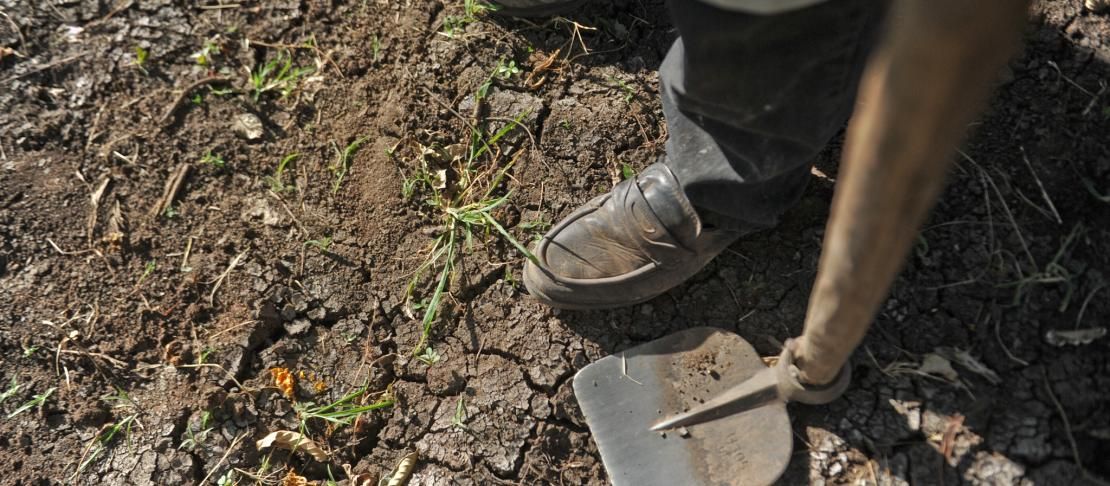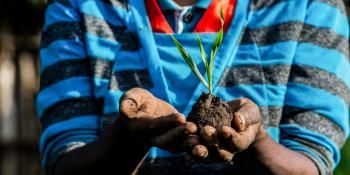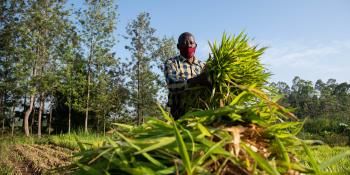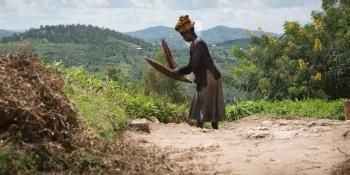Assessing loss and damage from the double impact of floods and droughts in Mozambique

A recent study by CCAFS, ILRI and UNECA on loss and damage in Mozambique reveals communities still face acute food security problems as current coping strategies are not enough.
The famous Limpopo, the Zambezi and the Save are three of Mozambique’s main rivers. Located on the south-eastern coast of the African continent, the country is exposed to a number of extreme weather events including droughts, floods and tropical cyclones. The economy is largely dependent on agriculture, and communities rely on fishing, livestock keeping and rain-fed farming as important parts of their livelihood.
Destruction to crops from extreme weather and falls in agricultural productivity from drought threaten the food security, health and economic stability of many Mozambicans. The country's three main rivers play a critical role in the occurrence of the double impact of floods and droughts affecting vulnerable communities living along their banks. Consequently, the unique nature of Mozambique provides a useful area in which to explore loss and damage in the context of social vulnerabilities and resilience.
Drought and floods impact livelihoods
Since September 2012, the International Livestock Research Institute (ILRI) Mozambique, the CGIAR Research Program on Climate Change, Agriculture and Food Security (CCAFS) and the United Nations Economic Commission for Africa (UNECA) through the African Climate Policy Centre (ACPC) have been undertaking a joint research project in Mozambique. This research aims to understand the impact of droughts and floods on maize production and how it leads to loss and damage among rural households in southern and central Mozambique.
Major findings from the study reveal that floods and droughts severely affected the households surveyed. Indeed 86% of the households were severely affected by floods while 84% by droughts,“ said Benjamin Ange Brida, a research fellow at ACPC and the principal investigator of the project.
He further pointed out that communities tend to reside close to the river banks where they are faced with the risks of flooding and are forced to relocate upland to drought prone areas. Due to their low adaptive capacity, communities face challenges recovering from the losses they face as a result of floods and drought.
Watch an interview with Benjamin Ange Brida about the findings of the Mozambique case study
A survey of 303 households was conducted in four districts – Chibuto, Mabote, Caia and Mopeia.The study sites within each district were selected based on the assumption that they represented particular vulnerability and exposure to floods and drought.
Current coping strategies are not enough
“Despite having various coping strategies in place, communities still face acute food security problems,” continued Benjamin Ange Brida.
In spite of the ‘powerlessness discourse’ often used at international level when a disaster occurs, rural communities in Mozambique have developed several coping strategies to deal with floods and droughts. These include: selling assets such as livestock, relying on assistance from social networks that include family and non-governmental organizations and diversifying their income generating activities. However despite these strategies, 48% of households still suffer the negative effects of floods. A significant majority (77%) indicated that their coping strategies did not prevent adverse effects of drought.
The researchers recommend the improvement of irrigation systems as a strategy which government can use to help the communities to cope with the challenges.
Read more about the findings in the below presentation:
What is the role of policy?
According to the study, policymakers need better information, empirical data and analysis of both the challenges and the potential solutions.
During a validation workshop held on 27th March 2014 at the Institute of Agricultural Research of Mozambique (IIAM) in Maputo, participants discussed how the study findings can feed into national policies and ongoing international discussions on loss and damage. Drawn from different provinces, the 19 participants including farmers, NGOs, CGIAR centers, national research and meteorological institutions emphasized the need for improving the downscaling and sharing of early warning information. In her opening remarks, Dr. Siboniso Moyo, the ILRI Regional Representative for Southern Africa emphasized the need for information, robust research and adequate funding. She further pointed out that the findings from the study will provide critical information for planning and decision making.
“This study is the beginning and will form the base for undertaking further research work on assessing the adaptive capacity of communities in Mozambique,” pointed out Dr. James Kinyangi, the Regional Program Leader for CCAFS East Africa, during the workshop.
As a next step, the researchers need to seek audience with the Mozambique government to share with them the findings of the research which they can use as they conduct global negotiations, he further advised.
The study has shown that current negative impacts are already translating into societal and individual loss and damage. However, more research is needed to quantify the losses in economic terms to guide comprehensive national and international policy.
Further reading
Brida, A., Owiyo, T.,and Sokona, Y., (2013)Loss and damage from the double blow of flood and drought in Mozambique. Int. J. of Global Warming, 2013 Vol.5, No.4, pp.514 – 531 Available online at http://www.lossanddamage.net/download/7234.pdf
Saskia Hendrickx is the Country Coordinator - ILRI Mozambique.
Felisberto Maute is a Research Assistant, International Livestock Research Institute, Mozambique.
Catherine Mungai is a Program Specialist, CCAFS East Africa.



